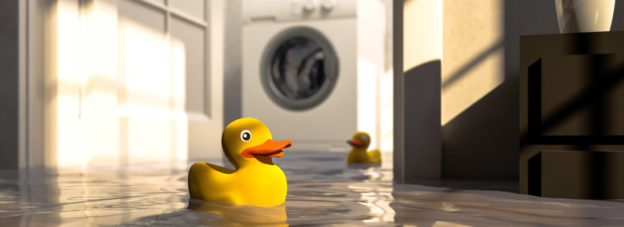In United States Automatic Sprinkler Corp. v. Erie Ins. Exch., et al., No. 21A-CT-580, 2022 Ind. App. LEXIS 87 (Automatic Sprinkler), the Court of Appeals of Indiana (Court of Appeals) considered whether there is a privity requirement for property damage claims against contractors. The court imposed a privity requirement. The court also addressed whether a subrogation waiver in a contract with a tenant applied to damage caused by work done outside the contract, at the landlord’s request. The court held that the waiver did not apply.
In this case, United States Automatic Sprinkler (Automatic Sprinkler) contracted with a tenant (Contract Tenant) to inspect and test a sprinkler system at a commercial building in Indiana. The contract included a waiver of subrogation provision. The building landlord subsequently hired Automatic Sprinkler to repair a leak in the sprinkler system. After completing the repairs, the system failed and flooded the building, causing significant property damage to several tenancies.
The tenants and/or their insurers sued Automatic Sprinkler seeking recovery of their losses and Automatic Sprinkler sought summary judgment against the plaintiffs. Regarding the Contract Tenant’s insurer, Automatic Sprinkler relied on the waiver of subrogation in the inspection agreement it had with the tenant. As to the other tenants, i.e. the Non-Contract Tenants, Automatic Sprinkler argued it was not in privity of contract with them and, therefore, did not have a legally recognizable duty to prevent injury to their property. After the trial court denied Automatic Sprinkler’s motion for summary judgment, Automatic Sprinkler filed an interlocutory appeal.
The Court of Appeals affirmed the trial court’s denial of Automatic Sprinkler’s motion for summary judgment against the Contract Tenant’s insurer. The court found that the waiver of subrogation provision was inapplicable because the work at issue was performed pursuant to a request by the landlord rather than under the inspection agreement with the Contract Tenant.
The Court of Appeals reversed the trial court’s denial of Automatic Sprinkler’s motion for summary judgment against the Non-Contract tenants, one of whom was proceeding through its subrogating insurer. To analyze whether Automatic Sprinkler owed a duty to the Non-Contract Tenants the court turned to the Indiana Supreme Court decision in Citizen Gas & Coke Utility v. American Economy Insurance Co., 486 N.E.2d 998 (Ind. 1985). In Citizen Gas & Coke Utility, the court held that “a contractor or repairman is not liable for negligent damages to third parties after acceptance of the work by an owner.” Although the court acknowledged that the more recent Supreme Court decision of Peters v. Forster, 804 N.E.2d 736 (Ind. 2004) — which adopted the foreseeability doctrine and held a contractor liable for personal injuries to a third party — abolished the privity requirement in personal injury claims, the court declined to apply the decision in the context of property damage claims.
Subrogation cases against contractors have various challenges. Automatic Sprinkler establishes that, in Indiana, lack of privity will keep a negligent contractor from being liable for property damage claims. So, the first issue to consider during a subrogation investigation arising from faulty workmanship in Indiana is to determine whether the insured is a contracting party. Doing so will allow subrogation professionals to determine whether a viable subrogation claim exists against the at fault contractor. Automatic Sprinkler further establishes that a waiver of subrogation is inapplicable to work performed outside the scope of the contract. Thus, subrogation professionals should immediately identify the contracted-for construction and services at issue when a defendant attempts to raise defenses based on a subrogation waiver provision.
Editor’s Note: The subsequent history noted for this case indicates that a transfer has been granted and the decision vacated. U.S. Automatic Sprinkler Corp. v. Erie Ins. Exch., 2022 Ind. LEXIS 416 (Aug. 2, 2022).

